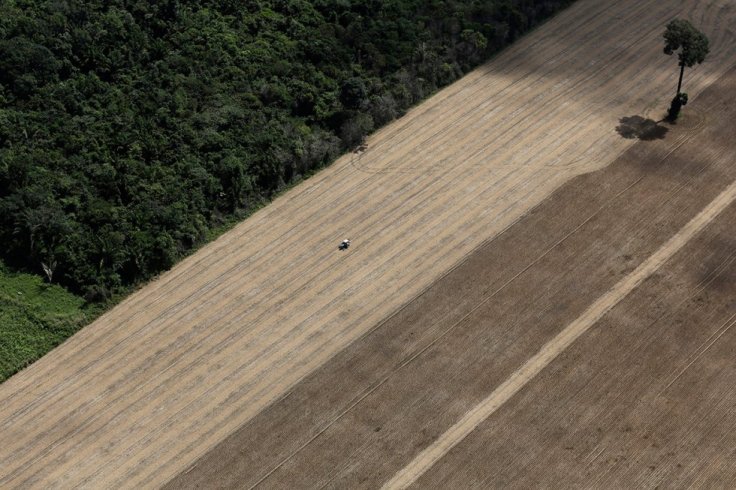
Introducing fungi to wheat boosts the plants' uptake of key nutrients from the soil and leads to new food crops and farming systems which are less reliant on fertilizers, scientists have claimed.
According to researchers at the University of Leeds, soil fungi introduction to wheat can lead to "climate-smart" varieties of crops, thereby reducing the escalating climate crisis, by providing nutrients under higher levels of carbon dioxide (CO2) predicted for 2100.
The results of the study published in the journal Global Change Biology suggest that fungi, which form a partnership with plant roots, provide significant amounts of phosphorous and nitrogen to a cereal crop.
Lead researcher Professor Katie Field from the University of Leeds School of Biology and Global Food and Environment Institute argued fungi could be a valuable tool to help ensure future food security in the face of the climate and ecological crises.
The researcher explained the fungi did not improve the productivity of food crops but had the potential to help reduce the current overreliance on fertilizers.

Agriculture, a major contributor to global carbon emissions largely due to significant inputs such as fertilizers, can be made eco-friendly by reducing the use of harmful chemicals.
Most plants have a symbiosis relationship with fungi, which take carbohydrates from plants and, in return, provide nutrients to the soil more efficiently. Fungi also help plants increase their growth, nitrogen levels, water uptake, and defend themselves against pests and disease.
Plants, which give 10-20 percent of the carbon they draw from the air to their fungal partners in exchange for up to 80 percent of their required phosphorous intake, have over the last 10,000 years been domesticated through intensive breeding, stopping some varieties from having such close beneficial relationships with fungi.
The farming of wheat, a staple crop for billions of people across the globe, needs intensive use of nitrogen and phosphorus fertilizers to boost yields as many of the crop's varieties grown by farmers do not form these partnerships with beneficial fungi.
Co-author Dr. Tom Thirkell said some of the crops that farmers have domesticated over thousands of years "lack these important connections with fungi in the soil, and our results suggest there is real potential to breed new crop varieties which regain this lost relationship with beneficial fungi to improve the sustainability of future food production systems".
There is an ongoing debate about whether or not fungi are positive to the growth of cereal crops as some evidence suggests fungi act as parasites to their plant hosts, but this study argues this is not the case with some varieties of wheat.
The researchers said field-scale experiments were needed to understand whether the fungi's beneficial effects on wheat demonstrated in this study were replicated in a farm setting.









